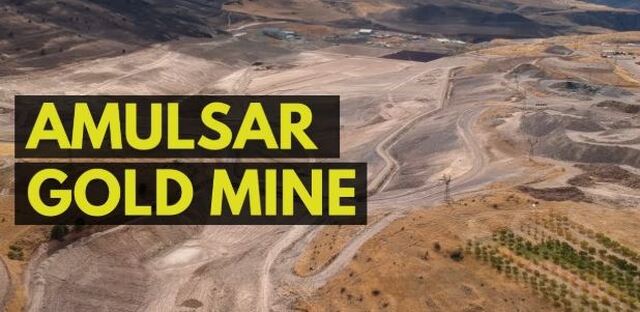Obviously, it has been very hard for the Prime Minister to make a decision in this situation: Sona Ayvazyan
An internal EU report claims that the UK government has pressured the Armenian government in a two-year standoff between protesters, an international mining company and the authorities, according to openDemocracy.
The Amulsar gold mine shot to the forefront of Armenian politics after the country underwent its “Velvet Revolution” in 2018, when public protests forced the ruling Republican Party out of power. In the aftermath local residents and environmental activists began a blockade of the unfinished $400m mining project, bringing them into conflict with British-American mining company Lydian International, the company’s international supporters and the Armenian government.
The internal EU report, dated October 2019, touches on the international dimension to the Amulsar standoff. As a result of the nearly two-year blockade, Lydian has been unable to access the Amulsar site and finish construction on the project, which is backed by resource investment funds, the European Bank for Reconstruction and Development (EBRD), as well as the UK and US governments.
The report, obtained under Freedom of Information from the European External Action Service (EEAS), states that ‘Prime Minister Nikol Pashinyan has been under pressure from the different stakeholders, including US and UK governments’ over the Amulsar standoff.
‘The US and UK governments,’ the partially redacted report continues, ‘hope Lydian would not be discriminated [against] and a similar approach towards other mining companies operating in Armenia would be applied.’
“The Prime Minister is in a very difficult situation, I believe,” said Sona Ayvazyan, executive director of Transparency International Armenia.
“He has his own values, such as democracy and care for the environment, his promises that the voices of Armenian citizens matter and that they are the masters of their own lives, that his government is different from the previous corrupt regime, etc. But Pashinyan faces strong public pressure and boosted expectations of people who supported the 2018 revolution, and meanwhile his actions are not in line with his values and promises.
“Apparently, he has been under significant pressure from the international community and, more specifically, the UK and US Embassies, risking to affect future foreign investments in the country. Obviously, it has been very hard for the Prime Minister to make a decision in this situation.”
The full article is available on the openDemocracy web site.






